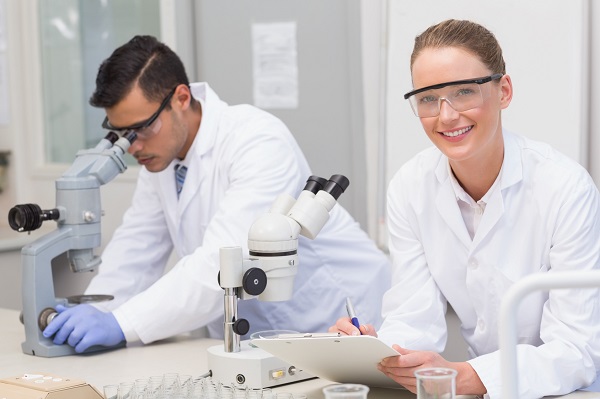
Study Links Mouth Bacteria and Pancreatic Cancer
At our Melbourne, Florida dental practice we are extreme proponents of the belief that oral wellness translates into whole body wellness. There has never been any definitive proof that the microbiota of the mouth can indicate serious chronic conditions, despite the numerous studies that have revealed trends that suggest the link. However earlier this year, a study was presented at the American Association for Cancer Research’s annual meeting that finally provided an undeniable link between pancreatic cancer and harmful mouth bacteria. This momentous study is extremely important because pancreatic cancer is often difficult to diagnose and not detected until it has developed into late stages where it claims thousands of lives every year. With this new information, doctors may be able to diagnose pancreatic cancer in patients sooner by detecting harmful mouth bacteria.
The Study
Researchers at the NYU Langone School of Medicine compared mouth bacteria from a sample size of 731 Americans who were involved in a larger, ongoing study of cancer risk. 361 of those participants developed pancreatic cancer during the 10 years they were followed by researchers.
The scientists found that two types of oral bacteria indicated a higher risk of pancreatic cancer for participants. Porphyromonas gingivalis was linked to 59 percent higher risk of developing the cancer, and Aggregatibacter actinomycetemcomitans was linked to a 50 percent higher risk of developing pancreatic cancer. These two types of bacteria are most commonly found in patients with periodontal disease. Those whom researchers did not detect either bacteria, remained cancer free.
To make sure that their figures were not tainted by “reverse causation” they even threw out cases where pancreatic cancer was detected two years after the researchers began to collect samples. This definitive proof that periodontal disease is linked to pancreatic cancer could be a key in early diagnosis that can help increase the odds of beating pancreatic cancer.
Pancreatic Cancer
According to the American Cancer Society, pancreatic cancer will be diagnosed in 53,070 Americans in 2016. This year they also expect that 41,780 people diagnosed with pancreatic cancer will die. It accounts for three percent of US cancer cases and seven percent of cancer-related deaths.
The pancreas is an essential organ that is comprised of two distinct areas responsible for different functions. Exocrine cells secrete digestive enzymes into the the intestines that allow our bodies to digest food and receive nutrients. And pancreatic endocrine cells produce the hormones insulin and glucagon that help control blood sugar levels. Because the pancreas is comprised of these two different cells, diagnosing cancer can be difficult. There are different tests, risk factors, causes, and symptoms for cancer in each cell. Cancer in the pancreas is dually difficult to detect because excretion is this organ’s major function and cancer is easily able to metastasize and spread to other parts of body.
Smoking, age, race, gender, and family history of pancreatic cancer are all risk factors. Understanding the link between mouth bacteria and pancreatic cancer may give doctors a better chance of detecting and diagnosing this evasive and deadly cancer.
The Outlook
The hope with this new discovery is that doctors and dentists can work together to determine if their patients are at an increased risk of developing pancreatic cancer. It’s not too far off to think that in the future cancer screenings will be available to patients who suffer from periodontal disease, and oncologists will be able to start fighting the cancer before it develops into its fatal final stages. Additionally, research into the effects of Porphyromonas gingivalis and Aggregatibacter actinomycetemcomitans are sure to follow. These two harmful bacteria have also been found in other chronic conditions and better understanding may improve our ability to improve the lives of the millions of people suffering from periodontal disease.
This new finding is nothing short of amazing. We hope that with this knowledge detection and treatment of pancreatic cancer will improve. In the meantime, we think this is a wonderful opportunity to remind our patients that periodontal disease is 100 percent preventable with routine oral care. While more than ½ of the American adult population suffers from the disease, it doesn’t have to be that way. If you brush and floss your teeth every day and make bi-annual trips to your Melbourne dentist for a routine cleaning, you can prevent harmful bacteria from wreaking havoc on your gums and prevent serious illnesses like pancreatic cancer. If you have questions about how you can best prevent or treat periodontal disease give us a call today.

